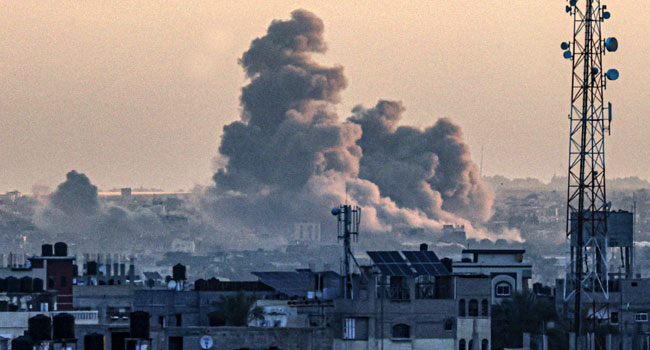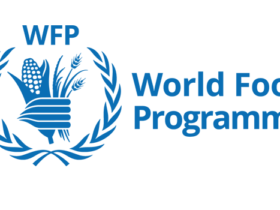UN humanitarians have expressed deep concern for patients and others seeking treatment who had “no way in and out’’ amid continuing fighting in Gaza including reported attacks on hospitals in the southern city of Khan Younis.
Speaking in Geneva on Tuesday, Mr Christian Lindmeier, spokesperson for the UN World Health Organisation (WHO) confirmed that Al-Khair Hospital was “one of the two hospitals that is now being raided”, while Nasser Hospital was “now basically besieged around the hospital and has no way in and out”.
“I know it must be a horrible scenario on the ground there with people not knowing what the next minutes will bring,” Lindmeier said in a statement.
The WHO spokesperson added that only 14 hospitals are still functioning in Gaza – seven in the north and seven in the south – where health needs are overwhelming after more than three months of heavy bombardment by Israeli Defense Forces.
The development follows an alert on X, formerly Twitter, from WHO Director-General Tedros Ghebreyesus on Monday evening about reports of “continuous fighting” near hospitals in Kheir Younis, where violence prevented “newly injured people outside the hospitals from being reached and receiving care”.
The situation is “absolutely unacceptable and not what any health facility anywhere in the world should go through”, Lindmeier insisted, noting that some 20 hospitals no longer function across Gaza.
Underscoring the dire humanitarian situation in the enclave, the WHO spokesperson described how desperate and hungry Gazans have become, in their search for food.
“One of the convoys had mainly fuel for hospitals on it but the people were holding it up as multiple times it was trying to move forward and trying to leave and trying to get onto the road because they were so desperate looking for food.”
Echoing that warning, the UN World Food Programme (WPF) warned that more than half a million people in Gaza continue to face “catastrophic food insecurity levels”.
The risk of famine increases each day as conflict continues to limit the delivery of lifesaving food assistance, said Abeer Etefa, WFP’s Middle East And North Africa Senior Communications Officer and spokesperson.
“It is the largest concentration of people in what looks like famine-like conditions anywhere in the world. And also how fast we got to this point is extremely concerning.”
The WFP spokesperson also noted that children who had been evacuated for treatment on the Egyptian side of the border appeared malnourished, underweight and “extremely thin”.
She added: “If we don’t have a more humanitarian pause, a ceasefire, more access to people, we’re going to see, you know, these people are starving already and they will be in a very difficult situation.’’
Also, UN humanitarians have reported that more than 25,000 have died in the enclave since the war began on October 7 as intense” Israeli bombardment in Gaza has continued along with rocket fire into Israel by Palestinian armed groups.
Citing Gaza’s health authorities, the UN Office for the Coordination of Humanitarian Affairs (OCHA) also noted that some 62,681 Palestinians have been injured by Israeli strikes launched in retaliation for Hamas-led massacres in Israel that left some 1,200 dead and around 250 people taken hostage.
Two Israeli soldiers have also been killed in Gaza since Friday, OCHA said, bringing the total to 193 since the start of the ground operation and 1,203 soldiers injured, according to the Israeli military.
The same period saw 343 Palestinians killed and another 573 people injured, the UN aid coordination office said.
Highlighting the scale of need among Gazans after more than three months of “intense” bombardment, OCHA said that only 15 bakeries were now operational in Gaza – “six in Rafah and nine in Deir al Balah” – and none is open north of Wadi Gaza.










Leave a Reply